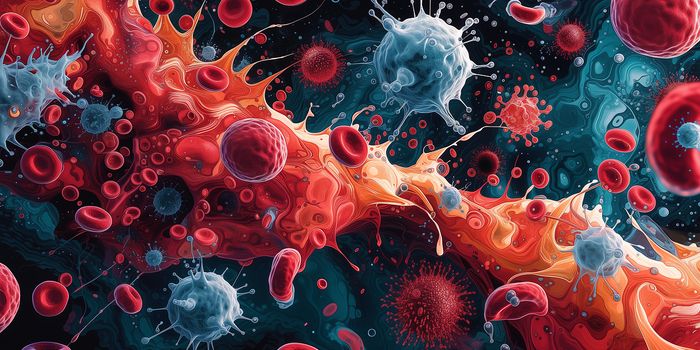How Are Allergies Developed?
You might have experienced it yourself or met someone that can not eat a certain food or can not take a specific medication or get close to some pets because they are allergic to them, but do you know what does allergy mean? And why are some people allergic to certain things, and some people are not?.
Allergy is an undesired immunological reaction to a harmless substance called "allergen" that is usually a protein like nuts, dust, milk, pets, and some drugs. All people can get allergies at any stage in their lives, but genetic factors play a role.
Allergy is the immune system's reaction to a harmless substance, but the immune system thought of it as harmful. One theory of why allergies are increasing nowadays is because of our lower exposure to germs in our environments which in turn reduced the number of harmful materials our immune system is exposed to, which makes it overreact to harmless substances.
Usually when we are exposed to a microbe or a harmful substance, a group of immune cells called "Antigen-presenting cells" capture that antigen and present it to other immune cells to start the cascade of the immune response, they present them mainly to T cells then T cells interact with B cells which in turn produce antibodies against those substances. This is precisely what happens in allergy, even though the substances are harmless.
Allergies are also referred to as hypersensitivities and can be divided into two main classes based on cells that mediate the immune response. Either IgE mediated allergy which is also referred to as hypersensitivity type I, or allergies mediated by other immune system components or cells which define hypersensitivity types II, III, and IV.
The above process is called sensitization. Some of the sensitized individuals will develop an allergic reaction upon their re-exposure to the allergen. So, how the symptoms of an allergic response onset? It happens upon re-exposure to the allergen; IgE antibodies circulate in the blood and bind to mast cells which are a component of the immune system, which initiates an aggressive response resulting in the destruction of mast cells and the release of inflammatory compounds as histamine that were contained in it. Those inflammatory compounds are responsible for all the allergic symptoms we see as respiratory symptoms and dermatological symptoms.
Administration of anti-histamine medications relieves the symptoms and controls them. Allergy immunotherapy (AIT) or desensitization is another strategy to overcome allergies. It has a similar concept to vaccines; administering small doses of an allergen that gradually increase to develop tolerance towards it. AIT depends on changing the immune response towards the allergen as producing less IgE or developing tolerance and reduce the immune response. The treatment can be taken as drops, as a dissolvable tablet under the tongue, or as an injection into the arm.
More research and strategies are needed to control and treat allergies.
Sources: British Society for Immunology, American Academy of Allergy, Asthma, and Immunology, NCBI








